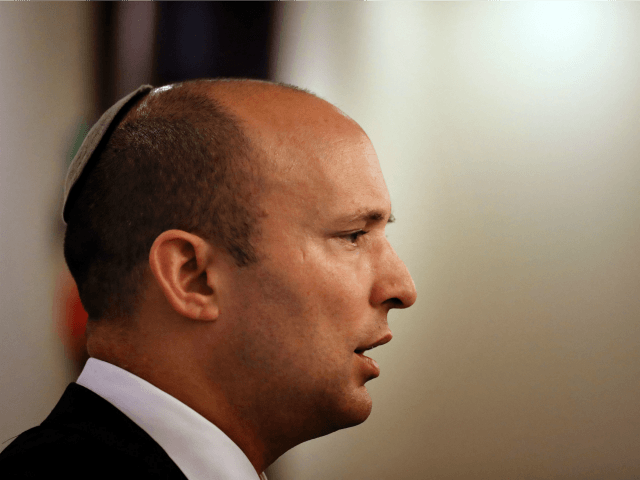Benjamin Netanyahu’s former aide, Naftali Bennett, is on track to replace him as prime minister after Israeli opposition leader Yair Lapid announced the formation of a unity government on Wednesday.
With just minutes left before the midnight deadline, Lapid, who leads the Yesh Atid party, informed outgoing Israeli President Reuven Rilin that he had assembled a motley coalition between right-wing, centrist, leftist and Arab parties that will unseat Netanyahu after 12 years in office.
“I am honored to inform you that I have succeeded in forming a government,” Lapid conveyed to the Office of the President.
Bennett, from the right-wing Yamina party, and Mansour Abbas, from the Islamist Ra’am party, reached an agreement with Lapid during marathon negotiations between eight parties on the last day of the 28-day mandate.
Yamina barely won 6% of the vote in the March elections.
The proposed government would see a rotational premiership in which Bennett, playing kingmaker, would serve as prime minister for the first two years and Lapid for the following two. It will be the first time in Israel’s recent history that an Arab party will sit in the ruling coalition.
The newly formed government must be sworn in within 12 days; obstacles remain, as there could be defectors from Yamina in a Knesset vote to confirm the coalition.
“After intense labor on behalf of all the citizens of Israel, and a two-year long political impasse, the Chairperson of Yesh Atid, Yair Lapid, informed President Rivlin that he has succeeded in forming a government,” Yesh Atid said in a statement.
The move would see Netanyahu step down after 12 consecutive years in power – the longest premiership in Israel’s history.
After Lapid and Bennett first announced their plans to form a unity government on Sunday, Netanyahu charged Bennett with carrying out “the fraud of the century” by reneging on a pledge he made prior to the election that Lapid would never be prime minister.
He went on to ask if the prospective government’s left-wing partners, namely Meretz and Labor, would combat Hamas in Gaza and Iran.
“What impact will that have on Israel’s deterrent capability? How will we look to our enemies? What will they say in Iran and Gaza? What will they do in Iran and Gaza? What will they say in the corridors of the administration in Washington?
“They wholeheartedly support that dangerous nuclear agreement. They’ll fight Hamas?” he said, adding that it was a “joke.”

COMMENTS
Please let us know if you're having issues with commenting.